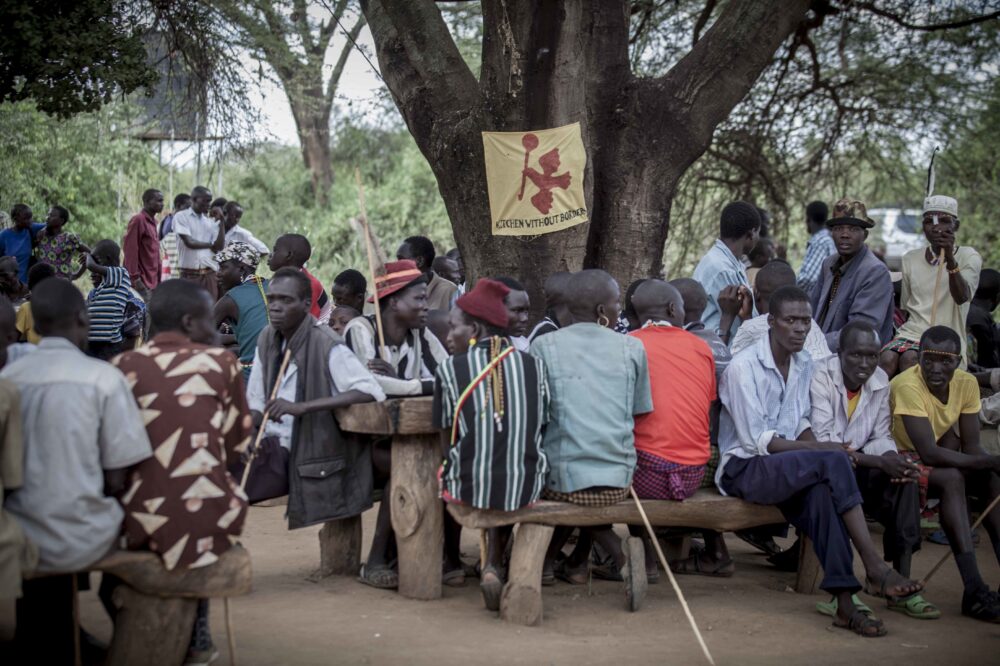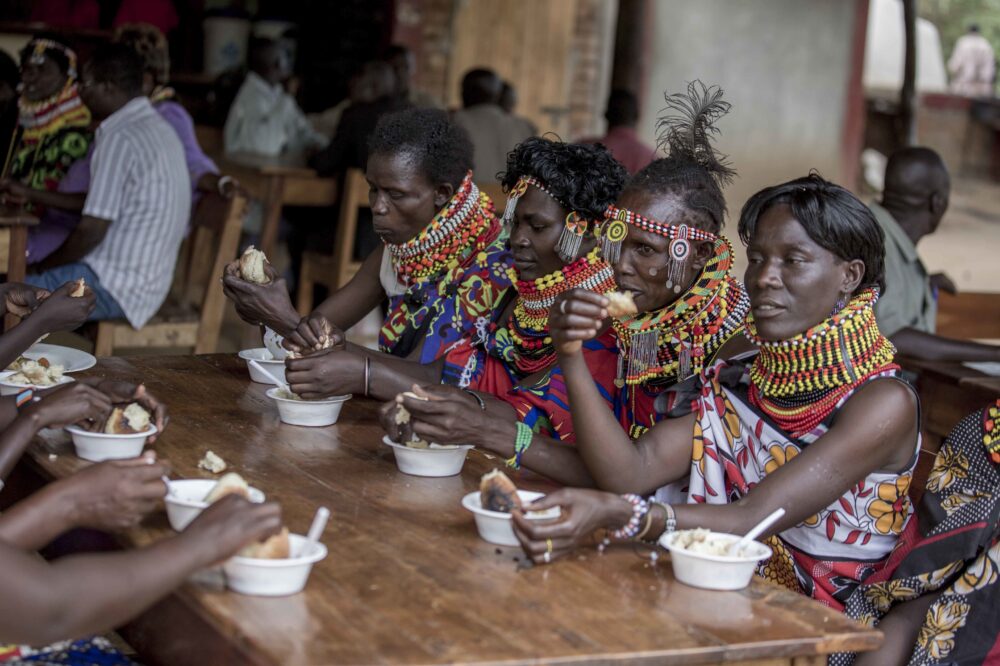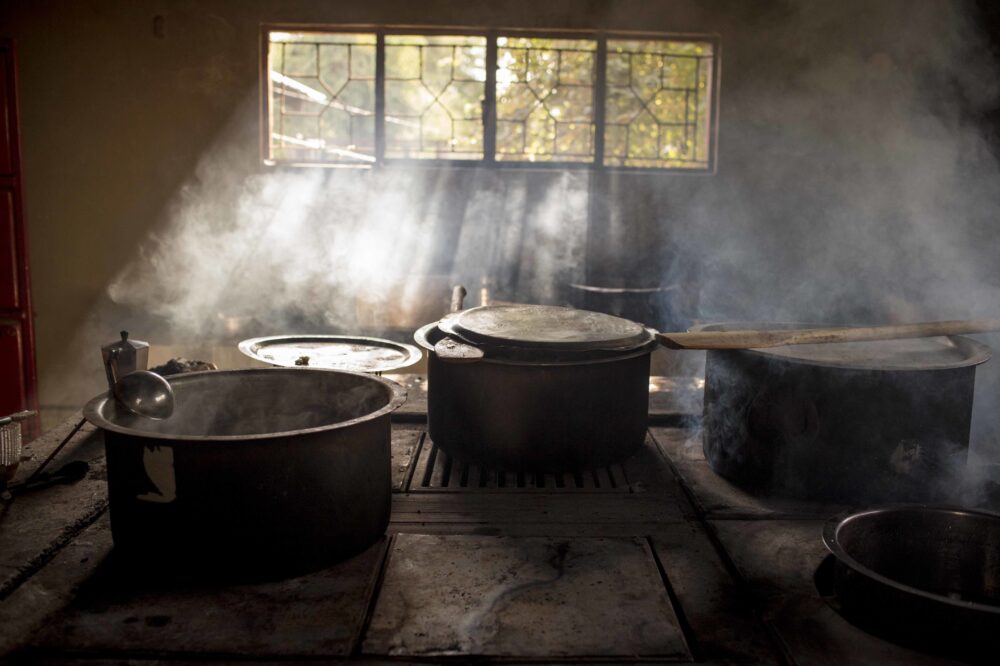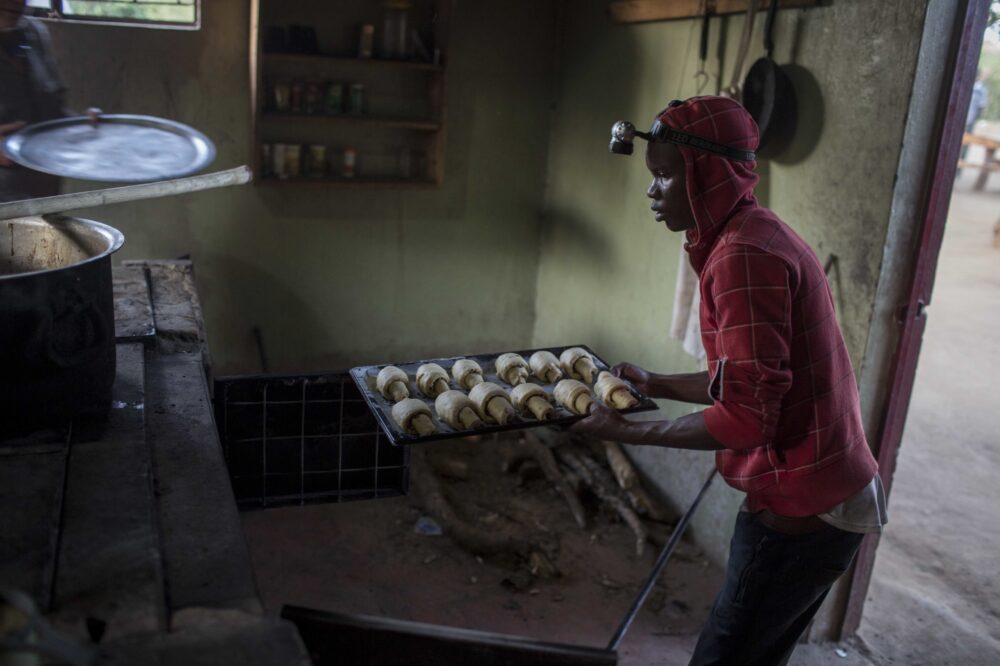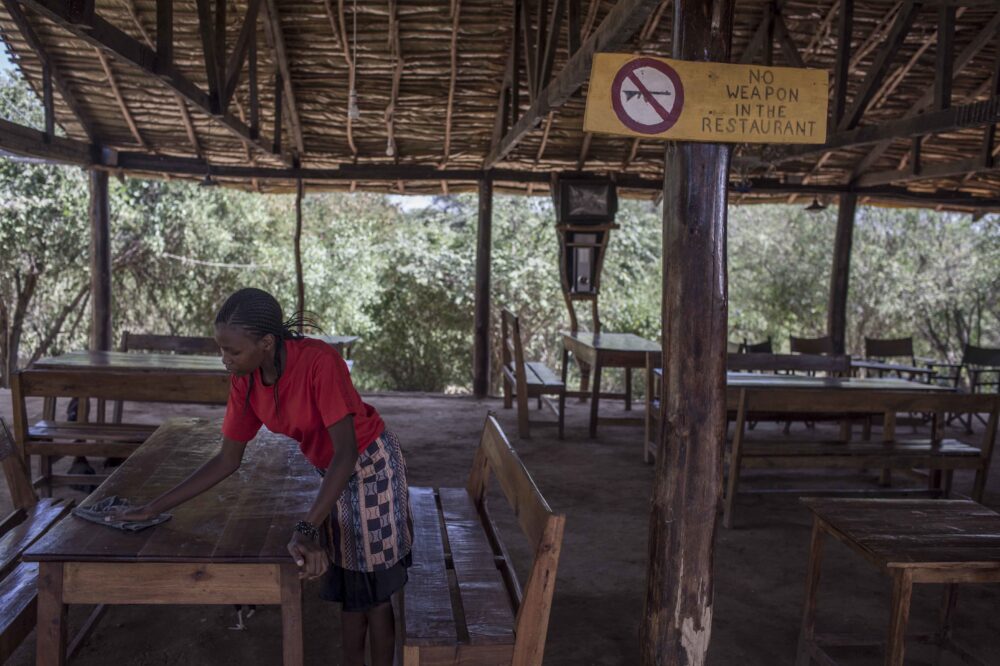The border area between Pokot and Turkana around Orwa is marked by conflicts over grazing land and water. Since 2011, the Calabash has existed in this peripheral region as a neutral meeting point, founded by Cuisine sans frontières and developed by the local team along with international volunteers.
A mixed team of Pokot and Turkana operates the Calabash, which, in addition to the restaurant, also hosts events for the local population, meetings for decision-makers, and peace talks.
Facts
| Project activities | Building and running the Calabash centre with a restaurant, sleeping accommodation and cultural events. |
|---|---|
| Project goals | Together with members of enemy tribes provide neutral ground for travellers or meetings (NGOs, local government, etc.). |
| Beneficiaries | Catchment area of 1 million people. |
| Running time | Since 2011 |
Around Orwa, in the northwest of Kenya, lies the border region between the Pokot and Turkana tribes. Violent conflicts frequently arise along these borders, primarily due to cattle rustling and disputes over grazing land and water access. Both resources have become increasingly scarce in recent years, and the area is arid.
Outside the small village of Orwa, along the main road between Kenya and South Sudan, Cuisine sans frontières established the Calabash gastronomic community project. This includes a restaurant, accommodations for large and small groups, toilet and shower facilities, a garden, and a small herd of goats.
A dedicated team of Pokot and Turkana employees jointly manages the Calabash. In addition to the daily restaurant operation, larger events are held monthly, regularly attracting several hundred guests – both Pokot and Turkana. Local chiefs and politicians use the Calabash as a neutral venue for meetings.
For the employees, the Calabash is more than just a source of income. Daily contact with colleagues from the other tribe actively helps break down prejudices. New encounters also take place every day within the restaurant itself.
The project has now firmly established itself. Cuisine sans frontières has already been asked to replicate the successful Calabash model in other regions of Kenya to provide young people with an income and contribute directly to peacebuilding. This partnership will continue to expand in 2025.
Facts
| Project activities | Building and running the Calabash centre with a restaurant, sleeping accommodation and cultural events. |
|---|---|
| Project goals | Together with members of enemy tribes provide neutral ground for travellers or meetings (NGOs, local government, etc.). |
| Beneficiaries | Catchment area of 1 million people. |
| Running time | Since 2011 |



